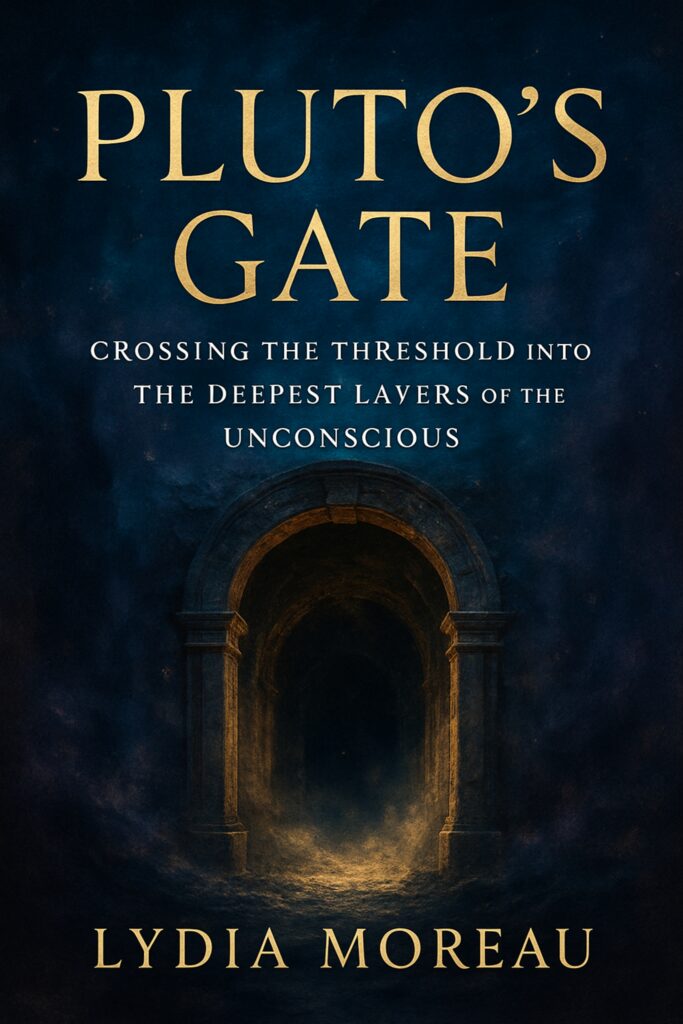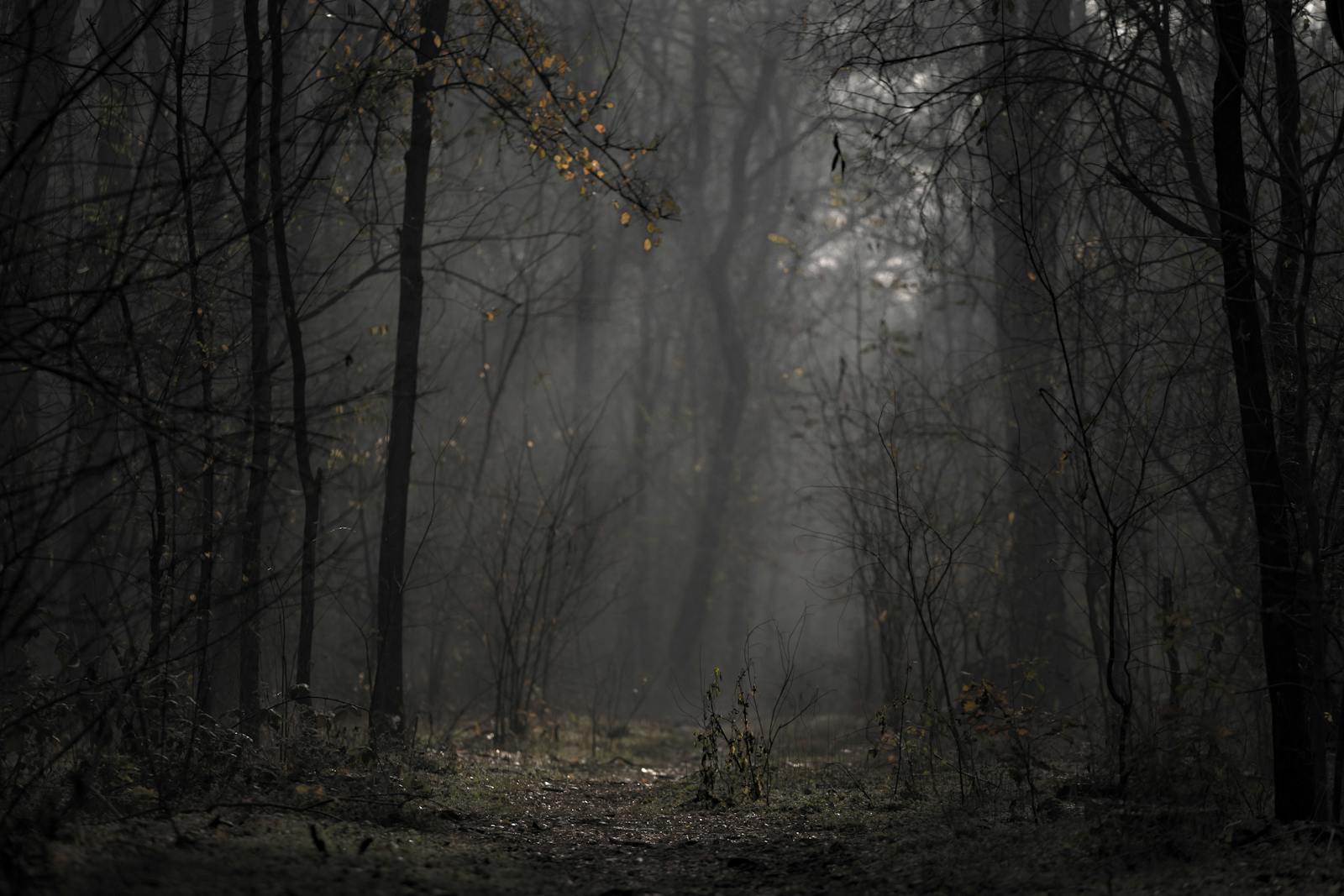Terror at the Doorway
Every culture has whispered the same truth: the most dangerous place is not the abyss itself, but the threshold that leads to it. The doorway, the crossroads, the cave mouth, the border between the familiar and the unknown. You can feel it in your own life — the moment before quitting a job, ending a relationship, stepping into a new identity. The stomach tightens, breath shortens, time slows. It feels like death. And in a way, it is.
Thresholds are where the psyche rehearses annihilation. They are psychic gates guarded by forces older than your rational mind. Modern psychology dresses them up in terms like liminality, ego dissolution, or transition anxiety. But let’s not sanitize it: thresholds terrify us because they strip us naked and dare us to walk forward without guarantees.
Thresholds as Archetypes
In myth, thresholds are never unguarded. Orpheus faced the gates of Hades. Inanna was stripped at each portal of the Great Below. Shamans were buried or dismembered before rebirth. These stories are not quaint relics — they encode a psychological law: no one crosses a real threshold without surrender.
The archetype of the threshold emerges whenever the psyche is on the verge of transformation. It is the liminal moment when one version of self must dissolve so another can take form. The unconscious treats thresholds as sacred contracts. You cannot walk through carrying your old baggage. Something has to be surrendered: a role, a relationship, a certainty, an illusion. This is why thresholds feel like death. They are demanding an offering.
Fear of Annihilation vs. Transformation
The body responds as if standing on a cliff edge. Heart rate spikes, adrenaline floods, and fear insists: don’t step forward. The ego interprets this as annihilation. But the deeper psyche whispers: this is transformation. Crossing the threshold liquefies the old self like a caterpillar dissolving into unrecognizable soup before reassembling as a butterfly. Terrifying, yes, but necessary. If you cling, you never evolve. If you step forward, you are remade.
Paradoxically, it is not collapse itself that terrifies us most, but the moment before it. Once chaos begins, surrender is inevitable. The threshold, however, is the razor-edge of choice. You can still turn back. That is why it burns with dread.
Gatekeepers at the Border
Every threshold has its guardians. Myth made them figures like Charon the ferryman, Cerberus the hound, or Hekate at the crossroads. In psychology, they appear as panic attacks, obsessions, compulsions. Their function is the same: to test your readiness.
- Fear is Cerberus, growling at the border.
- Obsession is Persephone’s pull, dragging you down.
- Crisis is Charon demanding his toll.
These are not pathologies to be eliminated, but initiatory gatekeepers. Ignore them, and you will be dragged through in chaos. Engage them consciously, and the gate opens with dignity.
The Hall of Illusions
Thresholds are lined with illusions. In dreams, they appear as mirrored corridors, doubles, or masks. The psyche presents false identities — the healer, the lover, the rebel, the achiever — to see if you will cling to them. If you grasp the mask, you remain stuck circling. If you strip it away, trembling, the gate opens.
This is why much of what is branded “shadow work” never goes deep. Endless journaling, therapy loops, or aesthetic rituals create the illusion of descent while keeping the traveler safely at the cave mouth. The unconscious cannot be tricked. It waits until your rituals collapse, until you stand with no script left. That is the true beginning.
Modern Thresholds We Face
You do not need a temple or cave to meet thresholds. They erupt in ordinary life:
- Quitting the job that defines you.
- Leaving the partner who anchors your identity.
- Transitioning faith, gender, or role.
- Beginning the creative work that might change everything.
These are not casual decisions. They are initiations. That’s why they terrify: the unconscious recognizes them as gates where an old self must die.
Why We Terrify Ourselves Before Crossing
Most of the fear occurs before the step. Sleepless nights, addictions, avoidance rituals — these are not procrastination but ritual terror, the psyche rehearsing death. The gatekeeper makes sure you understand the gravity of what you are about to do. When you finally leap, the panic dissolves into process.
Approaching the Gate Consciously
The unconscious does not respect affirmations, but it does respect ritual, offering, and conscious surrender. Methods rooted in both myth and depth psychology can steady the passage:
- Ritual Renunciation: Write down the identities or roles you know will not survive. Burn or bury them as symbolic offerings.
- Dreamwork: Invite the unconscious through nightly intention. Record what images appear; they are the psyche’s maps.
- Containment: Anchor yourself with a stone, a candle, a phrase, or a witness. Symbols tether you when the ground dissolves.
The crossing will never be easy, but these acts turn chaos into initiation.
The Gifts Beyond the Gate
Thresholds are merciless but generous. They strip and terrify, but they also deliver treasures impossible for the surface dweller. Those who cross emerge with eyes that see through masks, with instincts no longer repressed, with the strength of ancestors honored instead of denied, with a sovereignty that can stand even in silence.
The fear was never punishment. It was the price of admission.
Living as a Threshold-Crosser
Once you have endured a true threshold, life never looks the same. You recognize when others are circling their gates in terror. You learn that fear is not always an enemy, but a signal. You carry what Pluto’s Gate calls “underworld sight” — the ability to navigate transformation without mistaking the terror for death.
The gate does not open for tourists. It opens when the unconscious demands it. When masks slip, when fear rises, when life itself corners you into change — that is the sign. You are already standing at the black archway. The only question is whether you will step through.

If these words resonate, you are not alone. Pluto’s Gate: Crossing the Threshold into the Deepest Layers of the Unconscious explores these gateways in uncompromising depth, drawing on myth, psychology, and lived descent. It is a guide for those ready to step into the dark archway and cross.

